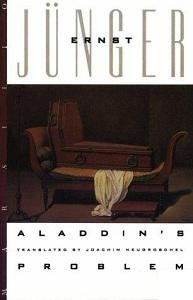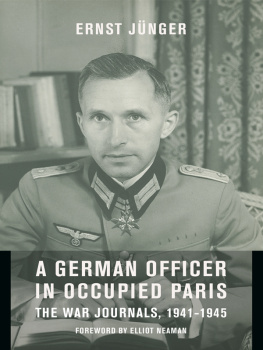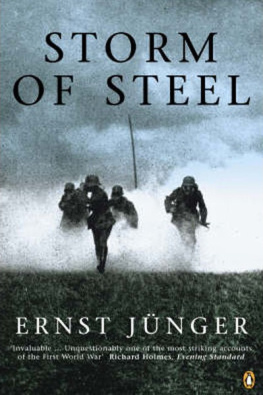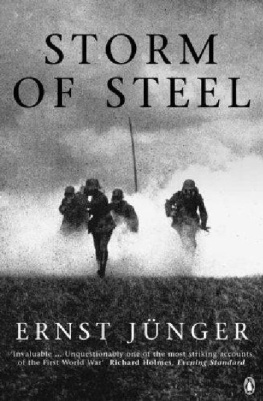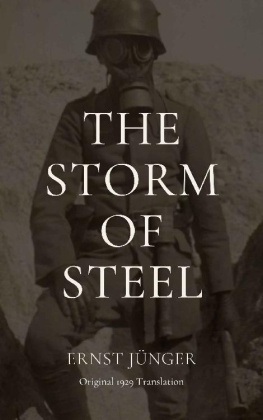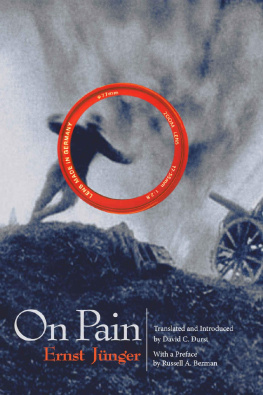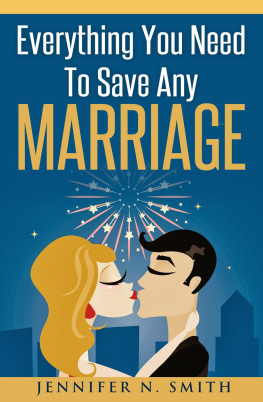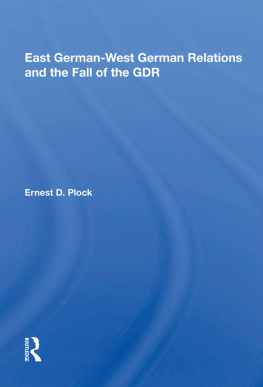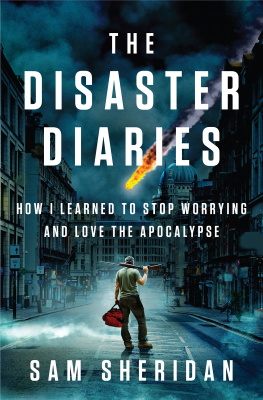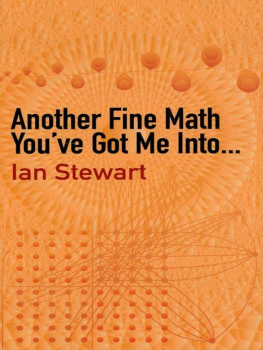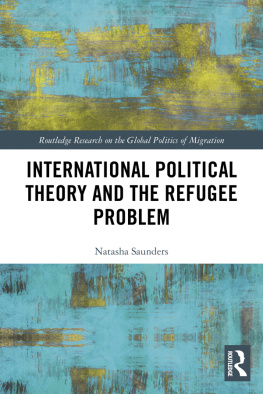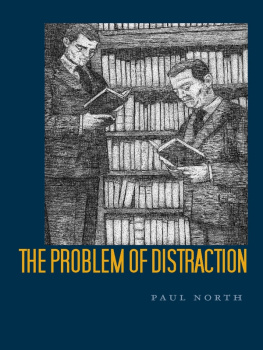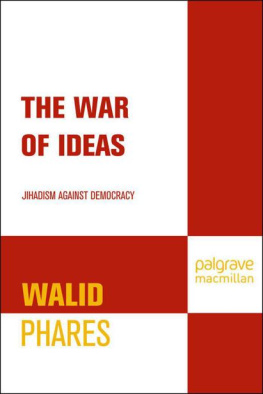Ernst Junger
Aladdin's Problem
1
It is time I focused on my problem. Who does not have a problem? everybody has one, and indeed several. Each problem has its rank; the main problem moves to the center of one's life, displacing the other problems. It incessantly haunts us like a shadow, casting gloom on our minds. It is present even when we awaken at night; it pounces on us like an animal.
A man has a headache now and again; this is not pleasant, but there are remedies. It becomes serious once he surmises that there is something behind it a small tumor, perhaps. Now, the fleeting worry becomes a steady one; it becomes the main worry.
2
Nevertheless, such a main worry is part of everyday life. This becomes obvious when we think of the statistics for while our man is pondering his tumor, the same worry is preying at the same time on thousands and thousands of other minds on this planet. Do he and those other people then have this worry in common? Certainly, but it nevertheless remains his utterly private and unsharable problem. Everything is at stake: the headache has concealed the tumor, but behind the tumor there may be something else perhaps a carcinoma.
Then again, there may be NOTHING behind it the problem may be imaginary. Fear too has its fashion: today it favors nuclear war and the carcinoma that is, collective and individual destruction.
Earlier, when paralysis was rampant, especially in the upper classes, and there, in turn, among the artists, many people imagined that they had been stricken with this disease, and a few killed themselves as a result. But it is precisely when there is nothing behind it that the problem becomes even more sinister. Terror no longer threatens as this or that, but in its undivided might.
3
When I stir my morning coffee and watch the swirling of the streaks, I am observing the law that moves the universe in the whirling of the spiral nebulae, in the eddying of the galaxies.
Intellectual as well as practical conclusions may be drawn from this. The sight reminds me of Newton's apple or the steam that Watt, as a boy, saw pouring from the kettle long before he invented his engine. "Food for thought," we say. Evidently, thinking is preceded by a harmony with matter, which is followed by the dreamlike mood that creates thought and from which thought springs.
But what does it matter? Whether the universe whirls or crumbles the problem remains behind it.
4
The problem is indivisible; man is alone. Ultimately, one cannot rely on society. Although society usually wreaks harm, indeed often havoc, it can also help, although not more than a good physician up to the inevitable limit where his skill fails.
Above all, no melancholy. The individual can comfort himself by recognizing his situation. Earlier, the religions contributed to this. Their close link to art is no coincidence, for they are its most sublime inventions.
Now that the gods have abandoned us, we must fall back on their origin: art. We have to gain an idea of what or whom we represent. There has to be a workshop somewhere. A potter throws vases, pitchers, ordinary tableware. His material is clay; everything emerges in the ebb and flow of tides, then crumbles into dust, and becomes new material for us.
Our social or moral position makes no difference in this regard. You may be a prince or a wage earner, a shepherd, a prostitute, or a pickpocket but usually you are like me, an ordinary person.
Everyone has his duty, his task. What was the idea when we were created, what is our mission? anyone who gives us even an inkling of that has ennobled us.
5
Now I am no poet; I have to admit it, though I can express "what I suffer" albeit only as a monologue. "Express": that is the right word, whatever the outcome may be. So it all boils down to a liberation, a kind of confession in hope of self-absolution. No other judge, no priest over me.
My time is limited; but anyone can spend a month retreating into the forest or the desert. There, he can describe or better: circumscribe his problem; it is then defined, though not solved. Perhaps he will celebrate it in song, or he will discover a cave and entrust his problem to the walls with black, yellow, and red earth colors. There, it can slumber until an archaeologist finds it and puzzles over it; but it would be better if it remained covered up forever.
6
Now, to get down to business first of all, personal business. I look into the mirror or at my Liegnitz wanted poster: Sex, male; age, thirty-seven; height, medium; brown eyes, dark hair with graying temples.
Unusual features: right leg slightly shorter due to an accident. No criminal record. The fact that I spent a few weeks in the guardhouse because of insubordination was not registered.
Religion, Protestant; but since my confirmation, I have gone to churches only on special occasions. Nevertheless, I respect them in their innermost essence namely, as artworks.
Occasionally, I have been tempted to leave the Church; but I have never reached the point of making up my mind. What held me back was not so much the thought of my ancestors turning over in their graves as my persistent adherence to tradition I am conservative by birth and by inclination, but primarily for convenience. Besides, leaving the Church would damage me professionally. Nor can I discard my manners; but I simply dose them out according to the company and the circumstances.
I remain inconspicuous in clothing and conduct, I wear gray suits of good cloth. I abhor any kind of thronging; at the theater, I prefer the center of the orchestra and an aisle seat, which I can leave quickly and unobtrusively.
At ticket counters and when boarding an airplane, I always get at the back of the line. In fencing, I would rather parry than flinch.
I avoid quarrels and debates, but I am tireless when conversing with a friend, male or female, even if my friend does not share my opinion, which I withhold in society. By the same token, I am a good listener.
7
For several weeks now, I have had a slight facial twitch every morning; my left eyelid droops slightly. Before uttering difficult words like "phenomenology," I have to think briefly, concentrate like a runner before the start. Then those words come out very glibly.
Those are bagatelles; I assume that I am the only one to notice them, but I observe my interlocutors with an attentiveness that has previously been alien to me. When we discover a lacuna, we easily talk ourselves into it. The lacuna disturbs us like a spot on a suit, the kind of spot that keeps getting bigger the more it is rubbed.
I sleep fitfully; my dreams are growing more vivid. After getting up, I look at myself in the mirror in order to establish my identity and make sure that it is still I. Where can I have sojourned? Perhaps some day I will not come back. One emigrates from one's body and settles in a new homeland. That would launch an adventure that is half frightening, half enticing.
The old garb is threadbare; I should change it, I do not feel comfortable in it. This is the condition of a snake before it sloughs its skin daylight becomes burdensome; the snake withdraws into its cave.
8
My family was wealthy, with an estate in the immediate principality of Liegnitz, Silesia. Their property was considerable, their name well known. When looking it up in an old lexicon, I find a number of bearers of that name who distinguished themselves in war and peace, in the army and in the government, at court and even in science and scholarship. Further bearers are listed in the Almanac de Gotha and in the military registers. The Pour le Merite was awarded five times, the Black Eagle three times. As everywhere else, there were also failures, who either went to America, made a name for themselves as eccentrics, or ended as suicides. One of them was even immortalized in the Pitaval, that collection of famous criminal cases. Thus, one has a thing or two in one's genetic makeup.

